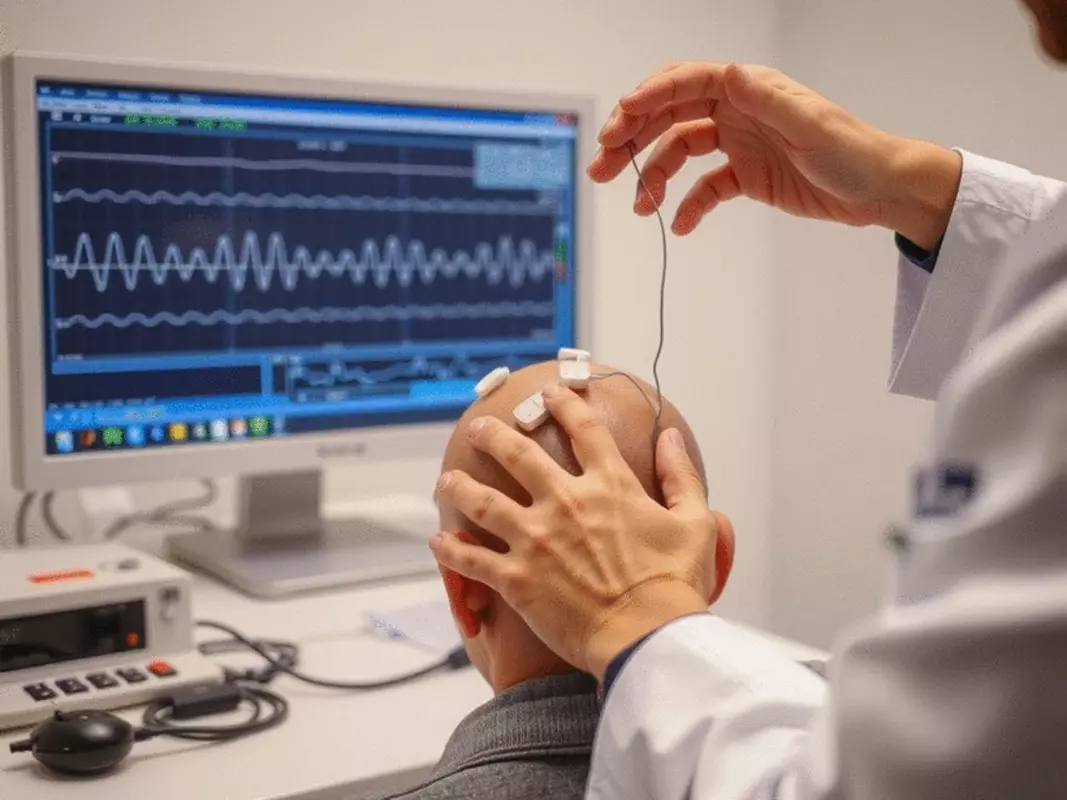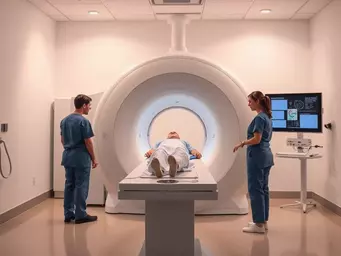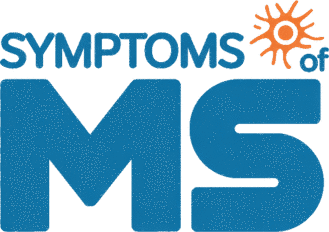Adapting Daily Life with MS

Have you ever wondered how a chronic condition like multiple sclerosis can reshape daily life? The journey through MS is filled with unique challenges, but understanding these experiences can provide hope and practical strategies for those affected. Here’s what you can learn from the stories and insights shared by the MS community.
What You Will Learn
- Managing overwhelming fatigue is essential for maintaining daily activities.
- Building a robust support network can provide emotional and practical assistance.
- Prioritizing self-care activities enhances mental and physical well-being.
- Staying informed about MS research and treatment options empowers patients to make informed health decisions.
- Embracing flexibility and adaptability in daily routines helps navigate the unpredictability of MS symptoms.
Impact of Multiple Sclerosis on Daily Living and Key Takeaways
Multiple Sclerosis (MS) significantly affects daily life through various symptoms and requires strategic adaptations. The visual below summarizes the main areas of impact and presents key takeaways for managing the MS journey.
Impact of MS on Daily Living
- •Fatigue: Overwhelming exhaustion impacting daily activities.
- •Mobility Issues: Difficulties walking or maintaining balance.
- •Cognitive Changes: Forgetfulness, trouble concentrating.
- •Emotional Challenges: Depression, anxiety impacting motivation.
- •Sensory/Vision: Tingling, numbness, blurred vision.
Key Takeaways for Managing MS
- ‣Embrace Flexibility: Adapt routines, explore new coping mechanisms.
- ‣Seek Support: Connect with family, friends, and fellow patients.
- ‣Prioritize Self-Care: Engage in activities for mental and physical well-being.
- ‣Stay Informed: Keep up with latest research and treatment options.
- ‣Community Engagement: Participate in forums, groups, webinars.
Understanding Multiple Sclerosis and Daily Life Adaptations
Multiple sclerosis (MS) can be a challenging condition that affects many aspects of daily life. Essentially, MS is a chronic disease that impacts the central nervous system, leading to a range of symptoms that can vary from person to person. But understanding how MS impacts daily living is crucial for those diagnosed and their families. It's not just about the physical symptoms; emotional and social aspects are also deeply intertwined.
Many individuals with MS often find themselves adapting their routines, environments, and lifestyles to cope with changes. This might include altering work schedules, making home modifications, or finding new ways to manage daily tasks. The journey through MS is unique for each person, and recognizing these adaptations can provide insight and hope to others facing similar challenges.

What is Multiple Sclerosis and Its Impact on Daily Living?
At its core, multiple sclerosis is an autoimmune condition where the immune system mistakenly attacks the protective covering of nerves, leading to disruptions in communication between the brain and the body. Common symptoms include fatigue, difficulty walking, numbness, and cognitive challenges. These symptoms can significantly affect daily life, making it essential to understand their implications for individuals. For more detailed information on MS and its impact, the Mayo Clinic offers comprehensive resources on diagnosis and treatment.
- Fatigue: This isn't just regular tiredness; it's an overwhelming exhaustion that can impair daily activities.
- Mobility issues: Many people with MS experience difficulties walking or maintaining balance.
- Cognitive changes: Forgetfulness or trouble concentrating can impact work and personal relationships.
- Emotional challenges: Depression and anxiety are common and can affect motivation and social interactions.
Each of these symptoms can lead to necessary adjustments in one’s routine. For example, someone might need to plan for rest periods during the day or seek assistance for certain tasks. The adaptability of individuals with MS is truly inspiring, showcasing their strength and resilience.
The Importance of Personal Stories in the MS Community
Personal stories can be incredibly powerful in the MS community. They create a sense of connection and understanding among individuals who might feel isolated in their experiences. When people share their journeys—both struggles and successes—it fosters a supportive environment where others can learn and grow. I’ve seen firsthand how sharing these stories can empower individuals to be proactive in managing their health.
- Inspiration: Hearing how others have navigated their diagnosis can inspire hope and motivation.
- Education: Personal narratives often highlight practical strategies for coping with symptoms.
- Support: Sharing experiences allows individuals to realize they are not alone in their journey.
As part of Symptoms of MS, my goal is to amplify these voices. Together, we can create a community that offers empathy, understanding, and shared wisdom, making the path through MS a bit less daunting.
Exploring MS Symptoms: Understanding Their Impact on Daily Life
Exploring the symptoms of MS is essential to appreciate their impact on daily life. As someone who has dedicated years to understanding this condition, I’ve seen how deeply symptoms can affect not just the individual, but also their families and support networks. Common symptoms include but are not limited to:
- Sensory changes: Many people report unusual sensations like tingling or numbness.
- Vision problems: Blurred or double vision can occur, impacting daily tasks.
- Muscle weakness: This can interfere with mobility and activities of daily living.
Understanding these symptoms helps shape the way we manage our daily activities. For instance, someone experiencing sensory changes might need to adjust their environment to enhance safety. The more we learn about these symptoms, the better we can adapt and advocate for our needs, ultimately improving our quality of life. For further insights into living with MS, including managing symptoms as you age, the MS International Federation provides valuable resources.

Latest MS Research and Treatment Options: What Patients Need to Know
Staying informed about the latest research and treatment options in MS is crucial. Advances in medicine are continually evolving, offering new hope for managing the symptoms and progression of the disease. Here are some key areas of focus in current MS research:
- Disease-modifying therapies: These treatments aim to reduce the frequency and severity of MS relapses.
- Symptom management: Research is ongoing to discover effective ways to alleviate specific symptoms like fatigue and pain.
- Holistic approaches: Integrative strategies, including diet and exercise, are being studied for their overall impact on well-being. The National Multiple Sclerosis Society offers guidance on diet, exercise, and healthy behaviors for managing MS.
Patients need to be proactive in discussing these options with their healthcare providers. Knowledge is power, and understanding available treatments can help you make informed decisions that align with your personal health goals. At Symptoms of MS, we are committed to keeping our community updated on these developments, empowering everyone on their journey with MS.
Engage with Your Journey
As you reflect on your experiences with multiple sclerosis, consider this question:
What is one adaptation you’ve made in your daily life that has significantly improved your well-being?
Share your insights in the comments below! Your story could inspire someone else facing similar challenges.
Frequently Asked Questions About Living with MS
- Q: What are the most common symptoms of Multiple Sclerosis?
- A: Common symptoms include overwhelming fatigue, mobility issues (difficulty walking or maintaining balance), cognitive changes (forgetfulness, trouble concentrating), emotional challenges (depression, anxiety), sensory changes (tingling, numbness), and vision problems (blurred or double vision).
- Q: How does MS impact daily life?
- A: MS can significantly affect daily life through its various symptoms, requiring individuals to adapt routines, environments, and lifestyles. This can include altering work schedules, making home modifications, or planning for rest periods.
- Q: Why are personal stories important in the MS community?
- A: Personal stories foster a sense of connection and understanding, inspiring hope, providing practical coping strategies, and helping individuals realize they are not alone in their journey. They empower patients to be proactive in managing their health.
- Q: What kind of support is available for people with MS?
- A: Support can come from family, friends, and fellow MS patients through local support groups, online forums, social media communities, and educational webinars. Building a strong support network is crucial for emotional and practical assistance.
- Q: How can patients stay informed about MS research and treatment options?
- A: Patients can stay informed by reading reliable sources (e.g., National Multiple Sclerosis Society), attending educational events, engaging openly with healthcare providers, and discussing new developments like disease-modifying therapies and holistic approaches with their care team.
Key Takeaways from the MS Journey
As we wrap up our exploration of the MS journey, it's crucial to reflect on the invaluable lessons learned from the personal stories shared by members of our community. These narratives not only highlight the resilience of those living with MS but also encapsulate effective strategies for navigating daily life with this complex condition. By synthesizing these experiences, we can better understand the multifaceted nature of MS and the importance of supportive connections.
Personal stories serve as a source of inspiration and practical advice. They encourage us to adapt and find what works best for our individual situations. Here are some key takeaways that can guide anyone dealing with the realities of MS:
- Embrace Flexibility: Life with MS often requires adjustments. Whether it's modifying daily routines or exploring new coping mechanisms, adaptability is key.
- Seek Support: Building a strong support network can make a significant difference. Connect with family, friends, and fellow MS patients who understand your journey.
- Prioritize Self-Care: Taking time for yourself is essential. Engage in activities that promote mental and physical well-being, from hobbies to relaxation techniques.
- Stay Informed: Knowledge is power! Keep up with the latest MS research and treatment options to make informed decisions about your health.
Encouraging Community Engagement and Support Resources
One of the most empowering aspects of the MS journey is the sense of community that emerges among those affected by the condition. At Symptoms of MS, we believe that sharing experiences and resources fosters a supportive environment where everyone feels understood. Engaging with the MS community can provide not only emotional support but also practical guidance.
Consider participating in online forums, local support groups, or social media communities dedicated to MS. These platforms allow individuals to share their experiences, ask questions, and find comfort in knowing they are not alone. Here are some resources to explore:
- Local MS Support Groups: Many communities host in-person or virtual meet-ups.
- Online Forums: Websites like [insert popular MS forum link] provide a space for discussion and advice.
- Social Media Groups: Platforms such as Facebook and Instagram have vibrant MS communities that share stories and tips.
- Educational Webinars: Organizations often host events featuring experts discussing MS management and research updates.
The Importance of MS Awareness and Education for Patients and Families
Raising awareness about multiple sclerosis is essential not just for patients but for their families as well. Education can demystify the condition, making it easier to navigate the challenges that arise. It can also help loved ones understand what their MS-affected family member is experiencing, leading to greater empathy and support.
At Symptoms of MS, we advocate for continuous learning about the disease. I often encourage patients and their families to ask questions during medical appointments and seek out trustworthy resources. Here are a few steps to enhance your understanding of MS:
- Read Reliable Sources: Look for information from credible organizations such as the National Multiple Sclerosis Society.
- Attend Educational Events: Participating in seminars or workshops can deepen your knowledge about MS.
- Engage with Healthcare Providers: Don’t hesitate to communicate openly with your neurologist or care team about any concerns or questions.
- Share What You Learn: Discussing your insights with family and friends fosters a better support system.
Remember, the journey with MS can be challenging, but through awareness, education, and community support, we can empower ourselves and others to lead fulfilling lives. Together, we can illuminate the complexities of multiple sclerosis and promote hope and resilience.
Recap of Key Points
Here is a quick recap of the important points discussed in the article:
- Understand MS Symptoms: Recognize common symptoms like fatigue, mobility issues, and cognitive changes that significantly affect daily life.
- Adapt and Be Flexible: Life with MS often requires adjustments in routines and coping strategies; embracing flexibility is crucial.
- Connect with Others: Build a support network by sharing experiences and finding community among those affected by MS.
- Prioritize Self-Care: Engage in activities that promote well-being, from hobbies to relaxation techniques.
- Stay Informed: Keep abreast of the latest MS research and treatment options to make informed health decisions.









